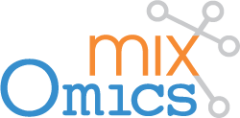If you’ve missed out, our next iteration will run from 19th Feb – 5th April 2024. You can fill up this short survey to be notified when we open our next course.
Summary
- The new course is open and will run for 7 weeks. This course is online, but at your own pace, meaning that you need to dedicate enough time (5-8h per week) to fully benefit from the program.
- There are 4 weeks of asynchronous learning (you work at our own pace to cover the material).
- There are 4 live webinars organised on Thursdays at 5pm AEST (convert your time here) in the first 4 weeks to summarise some key concepts and ask your questions (the webinars will be recorded).
- You will have the opportunity to chat on Slack and ask your questions during the whole course.
- You can analyse your own data for the assessment (due in week 6) or use the data provided. You will reinforce your learning by marking the assignments of 2-3 other learners.
Feedback from the 2022 iteration can be found here.
- Teaching Period Dates, asynchronised:
- Learning Start: Monday, 22 May 2023, 9:00 am AEST
- Learning Ends: Sunday, 18 June 2023, 11:59 pm AEST (4 weeks)
- (non marked) Assessment due: Friday 30th June 2023 (2 weeks)
- Peer-review of assessment due: Friday 7th July 2023 (1 week)
- Fees vary for
- Research Higher Degree students enrolled at a University: $495 AUD (incl. GST)
- Staff and members from Universities & Not-for-profit organisations: $825 (incl. GST)
- Other industries: $1320 AUD (incl. GST)
- discounts of 5% for a group of 3-9 learners and 10% for 10+ learners, however, this will require a single invoice per group.
(these funds go towards the support of a software developer to maintain the package)
- Information about the course and registration:
- Information about the course: https://study.unimelb.edu.au/find/short-courses/mixomics-r-essentials-for-biological-data-integration/
- Registration: https://your.unimelb.edu.au/s/event/a2a2e0000008buM/mixomics-r-essentials-biological-may-23-b2c
The number of places is limited, so first come first serve (we aim to run this course twice a year).
What if I need an invoice? Contact Student Support at continuing-education[at]unimelb.edu.au
Prerequisites. A good working knowledge in R programming (e.g. handling data frame, perform simple calculations and display simple graphical outputs) is essential to fully benefit from the course*. The course is divided into theory (50%) and hands-on practice, with the opportunity to analyse your own data. The exercises and assignments are in R. Participants are encouraged to use RStudio and Rmarkdown (template and R code provided).
- For those looking for an R refresher well ahead of the course:
- https://monashdatafluency.github.io/r-intro-2/index.html
- the R cheatsheets for reference: https://iqss.github.io/dss-workshops/R/Rintro/base-r-cheat-sheet.pdf
*Learners who are not proficient in R do not get the full benefit of the course (based on their own, honest, feedback!)
